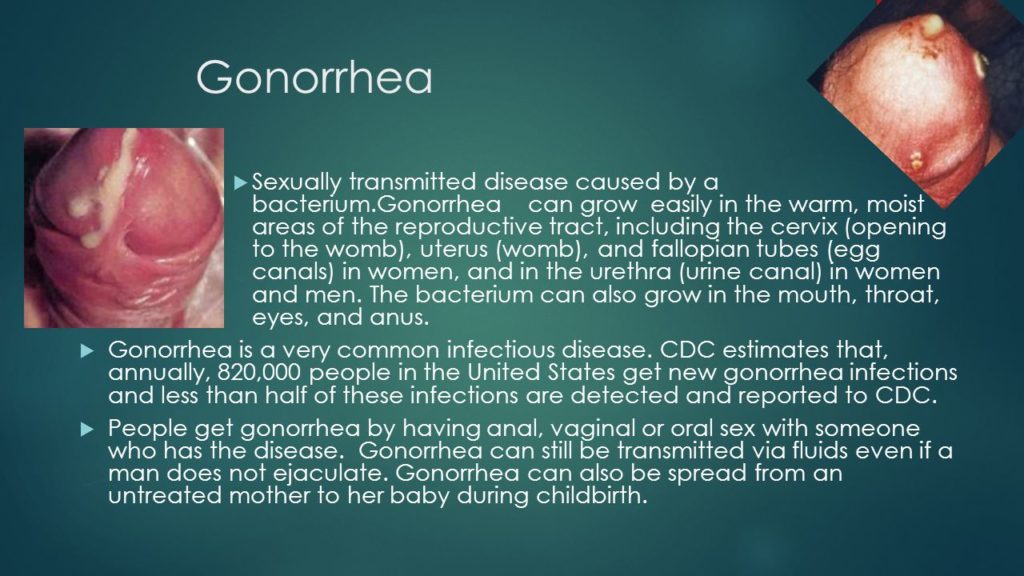Gonorrhea is a sexually transmitted disease caused by a microorganism called Neisseria gonorrhoeae otherwise known as gonococcus. Individuals become infected when their genitals come in contact with penile or vaginal discharge during intercourse or other sexual activities.
The disease affects about 0.6% of men and 0.8% of women globally. Annually, between 33 to 106 million new cases of gonorrhea occur out of the estimated 498 million new cases of curable sexually transmitted infections recorded worldwide. If left untreated, the disease can lead to major health complications.
In 2016, the World Health Organization (WHO) approved new guidelines for the treatment of gonorrhea due to the increasing rate of resistance to current medication by the causative organism. The global health body urged countries to upgrade their treatment guidelines in response to the emergence of new multidrug-resistant strains of the organism. Click Here to Read: Can You Get Gonorrhea From Kissing
Major Complications of Untreated Gonorrhea in Men
An untreated gonorrhea infection in men can lead to;
- Prostatitis ( inflammation of the prostate)
- Epididymitis ( inflammation and infection of the epididymis)
- Disseminated Gonococcal Infection (DGI) with the tendency to cause arthritis, fever. Sepsis, cellulitis, endocarditis, and meningitis.
Major Complications of Untreated Gonorrhea In women
An untreated gonorrhea infection in women can lead to;
- Reproductive System Related Complications
- An ectopic (tubal) pregnancy
- Pelvic inflammatory disease
- An abscess in or near the ovaries (tubo-ovarian abscess)
- Inflammation of the Bartholin glands
- Infertility
- Chronic pelvic pain and
- Fitz-Hugh-Curtis syndrome is a rare complication
- Complications During pregnancy
- Premature rupture of the membranes (PROM),
- Increased chances of preterm Labour
- Increased risk of miscarriage.
- Increase risk of preterm labor. The woman may be given medicines to prevent premature birth, which could require a stay in the hospital.
- Endometritis or Infection of the lining of the uterus
- Complications in newborns
- Neonatal meningitis
- Conjunctivitis (pinkeye)
- Sepsis
Symptoms of Gonorrhea
Symptoms of gonorrhea are insidious in women. That is to say, women are mostly asymptomatic to the disease (show no clinical symptoms of the disease)
The symptoms of the disease are further subdivided based on the frequencies of their occurrence into common and less common symptoms
Common symptoms of Gonorrhea
- Yellow-white, or green-white discharge from the opening of the penis
- Painful urination
- Rectal pain,
- Rectal discharge or bleeding
- Inflammation of the eye
Less Common of Gonorrhea
- Burning sensation
- Pain in the scrotum
- Itchy genitals
- Sore throat
Prevention
As with most sexually transmitted diseases, the safest method of prevention is abstinence from sex and faithfulness to one’s sexual partner. However, those who have multiple sexual partners are encouraged to avoid unprotected sex. Previously infected individuals are also encouraged to return for retesting to ensure that the bacteria have been completely eliminated from their systems. Read: Can Gonorrhea Be Gotten From Toilet?
Gonorrhea Treatments
Mild Gonorrhea infection and others confined to the female cervix can be treated with a single Gonorrhea shot of an antibiotic called ceftriaxone along with a second oral antibiotic such as doxycycline or azithromycin. Women with severe allergic reactions to penicillins can also be treated for Gonorrhea using alternative antibiotics such as azithromycin.
What does gonorrhea look like?
Copyright ©
Permission is hereby granted for the use of whole or parts of this article provided appropriate credit is given to www.publichealth.com.ng







2 Comments